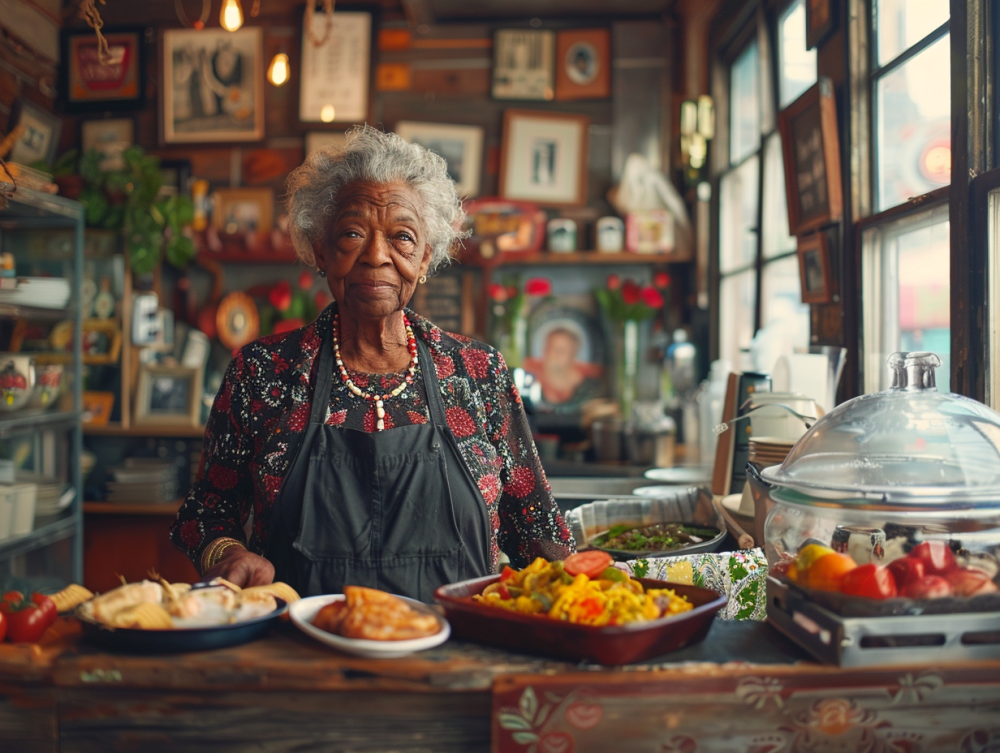As the holiday season approaches, food becomes a central theme in celebrations, especially within the African diaspora. From rice and peas to fruit cake, the culinary traditions that have emerged from the rich history of Black communities around the world are a testament to resilience and creativity. This article delves into the diverse holiday dishes that connect Black people across continents, showcasing how our shared heritage influences our festive meals.
The significance of food in holiday celebrations
Food and holiday festivities are intertwined, as famously noted by Nat King Cole in his classic “Christmas Song.” For the over 170 million people of African descent living outside of Africa, food serves as a bridge to our roots. Many of the dishes enjoyed today are derived from West and Central African culinary traditions, adapted over generations as our ancestors navigated the challenges of displacement and cultural assimilation.
Shared culinary heritage
Despite the forced separation from their homeland, enslaved Africans maintained a connection to their culture through cooking. They blended traditional African recipes with local ingredients and European influences, resulting in a vibrant array of dishes celebrated during the holidays. Here are some notable examples:
1. Rice and peas
Rice and peas is a staple across the diaspora, with variations like Hoppin’ John in the southern United States and arroz con gandules in Puerto Rico. Hoppin’ John, often flavored with pork, is traditionally served with collard greens and cornbread, symbolizing prosperity for the New Year. In Trinidad, the dish is known as peas and rice, featuring green seasoning for a spicy kick.
2. Ham
While pork was not a common food in West and Central Africa, it became a holiday favorite in the Americas. Baked ham is a popular dish in the United States and the Caribbean, with unique preparations such as Jamaican Christmas ham garnished with cloves and pineapples, and Haitian griot, a savory fried pork dish.
3. Souse
Souse, a pickled meat dish made from less desirable parts of the pig, cow or chicken, is enjoyed throughout the Caribbean. This dish is a Caribbean adaptation of head cheese, marinated in lime and spices, and served cold, showcasing the resourcefulness of our ancestors.
4. Pastelle
A beloved Trinidadian dish, pastelle is made with minced meat and cornmeal, wrapped in banana leaves and steamed. Its sweet counterpart, Paime, features coconut and raisins. This dish reflects the Spanish influence on Caribbean cuisine and is celebrated in festivals across the region.
5. Pepperpot
Considered a national dish of Guyana, pepperpot is a rich meat stew seasoned with spices and scotch bonnet peppers. Traditionally served with bread, it embodies the fusion of flavors that characterize Caribbean cooking.
6. Sorrel
Sorrel, a refreshing drink made from the hibiscus plant, is enjoyed cold in the Caribbean, often sweetened with sugar and flavored with spices. Known as bissap in Senegal and agua de Jamaica in Latin America, this drink connects various cultures through its shared ingredients.
7. Ginger beer
This non-alcoholic beverage, made from ginger, lime and sugar, has become a holiday staple in the Caribbean. Its origins trace back to England, but it has been embraced and adapted by Black communities across the Americas.
8. Cream punch and Coquito
Similar to eggnog, ponche crema from Venezuela and Coquito from Puerto Rico are festive drinks that vary by region. These creamy concoctions often include rum and spices, showcasing the influence of European traditions on Caribbean holiday celebrations.
9. Black cake
Also known as fruit cake, black cake is a dense dessert made with rum-soaked fruits. Its rich flavor and dark color come from browning, a caramel syrup, making it a favorite during holiday gatherings in the Caribbean.
10. Pen patat
This Haitian sweet potato pudding, made with bananas and coconut cream, is a holiday favorite. Variations exist across the Caribbean, reflecting local ingredients and traditions.
The holiday dishes enjoyed by the African diaspora are more than just food; they are a celebration of culture, history and resilience. Each dish tells a story of adaptation and creativity, connecting us to our ancestors and to each other. As we gather around the table this holiday season, let us honor these culinary traditions that unite us across continents.















